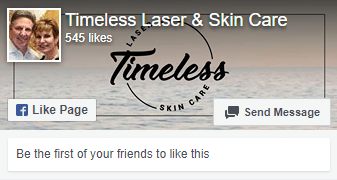- Choose a short, warm shower over a long, hot shower or bath. Hot water strips oils from the skin more quickly than warm water.
- Filter out the chlorine from your shower water. Chlorine has an intensive drying effect on the skin; and according to the American Chemical Society, we absorb more chlorine by taking showers and baths than by drinking water. Carbon-based filters and KDF filters made of copper and zinc both help to remove chlorine from shower water.
- Use a gentle facial cleanser and a shower gel with moisturizer. Choose unscented, soap-free cleansers. We carry a line of exceptional and affordable physician-grade skin care products and would be glad to help you choose a facial cleanser that will be right for your skin.
- Moisturize while skin is moist. Pat your skin with a towel after you shower or after you wash your face or hands, leaving your skin damp. Apply the moisturizer while skin is still damp to lock moisture in your skin. We carry several excellent physician-grade moisturizers.Wear a broad spectrum (both UV-A and UV-B protection) sunscreen on your face and hands (and neck and chest if they are exposed) every day, even in the winter. Even in our cars on the shortest days of the dreariest months, our skin is exposed to the short-wave UV-A rays that cause premature aging because these UV-A rays penetrate ozone, clouds and glass. I recommend a sunscreen with a sun protection factor (SPF) of at least 25 daily and at least 40 if you will be out in the sun (i.e. skiing or heading to a beach somewhere to escape the cold). We carry several of the best medical grade sunscreens available and can help you choose the product that will be best for you.
- Wear a broad spectrum (both UV-A and UV-B protection) sunscreen on your face and hands (and neck and chest if they are exposed) every day, even in the winter. Even in our cars on the shortest days of the dreariest months, our skin is exposed to the short-wave UV-A rays that cause premature aging because these UV-A rays penetrate ozone, clouds and glass. I recommend a sunscreen with a sun protection factor (SPF) of at least 25 daily and at least 40 if you will be out in the sun (i.e. skiing or heading to a beach somewhere to escape the cold). We carry several of the best medical grade sunscreens available and can help you choose the product that will be best for you.
- If you use medicated products such as retinoids or benzoyl peroxide and you find your skin is getting more irritated from these than it did before, you may need to cut back how often you use them (i.e. from every night to every other night) or you may need a lower dose of the retinoid during the winter months.
- Drink plenty of water and don’t overindulge in caffeine or alcohol, both of which act as diuretics and can actually dry out your skin.
- Eat foods rich in omega-3 oils, such as cold-water fish (wild Pacific salmon, halibut, sardines), fresh-ground flax, and raw walnuts, all of which can help fortify the skin’s natural oil-retaining barriers. Consider taking evening primrose oil or black currant oil, both of which are good sources of GLA (gamma-linolenic acid) and promote the healthy growth of skin, hair and nails. You won’t see immediate results; but in six to eight weeks you should begin to notice positive changes.Plug in a humidifier at home to help keep skin hydrated when indoor air is dry during winter months. Better yet, keep live indoor plants that you water regularly. Houseplants add moisture to the air by a process called transpiration.
- Plug in a humidifier at home to help keep skin hydrated when indoor air is dry during winter months. Better yet, keep live indoor plants that you water regularly. Houseplants add moisture to the air by a process called transpiration.Protect your face in the winter with a soft scarf or ski mask.
- Protect your face in the winter with a soft scarf or ski mask.
How to Care for Dry Winter Skin




